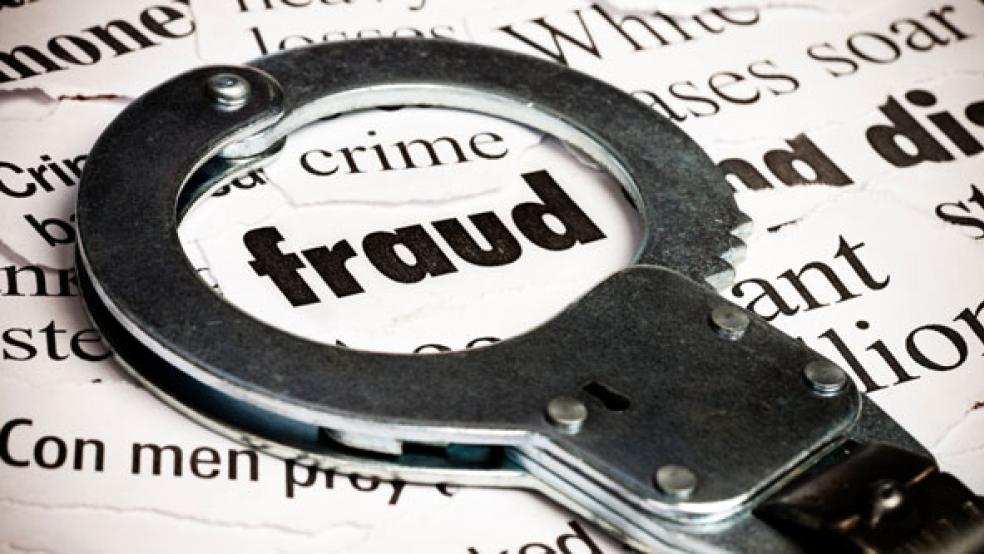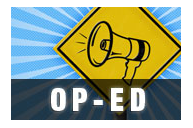Six years ago this week — on March 10, 2008 — the collapse of Bear Stearns served as a grand prelude to the full-blown financial crisis that erupted a few months later. Fittingly, almost as a cosmic bow to this anniversary, a new revelation of fraud last week provided another reminder of how little our markets have changed to reduce the risk of similar implosions.
Last Thursday, the Securities and Exchange Commission charged five former executives at the now-bankrupt law firm of Dewey & LeBoeuf with facilitating a $150 million fraudulent bond offering. The SEC complaint alleges a “wide-ranging campaign to manufacture fake revenue by manipulating various entries in Dewey's internal accounting system.” Separately, the Manhattan District Attorney’s office announced indictments of three former senior leaders of Dewey & LeBoeuf and a client relations manager. According to the SEC, accounting fraud at Dewey was an open secret:
So pervasive was the culture of financial chicanery at Dewey's top levels that its highest ranking officials — including the Defendants — had no qualms about referring among themselves in various emails to "fake income," "accounting tricks," "cooking the books," and deceiving what they described as a "clueless auditor."
The charges understandably sparked intense interest in the media. The case involves an iconic brand in the legal profession, a “global super firm” whose bankruptcy in 2012 ranked as the largest collapse of a U.S. law firm. But the burgeoning flurry of headlines also reveals our collective tendency to react to specific cases of fraud with an obsessional and myopic sensationalism that obscures the broader context of causes and consequences.
Granted, every case of fraud constitutes an injustice in which wealth destruction represents only one of many tangible insults added to the deeper injury of desecrated trust. The victims of fraud observe the perpetrators with a level of morbid fascination usually reserved for high-speed collisions and public executions. In this anguished mindset, people often choose not to grasp the full meaning of the moment.
To the extent that they overcome this willful blindness, they will reach at least these two conclusions: 1. Accounting fraud represents a foundational threat to market integrity, and 2. Corporations, investors, auditors, analysts and regulators are missing “low-risk/high-return” opportunities to implement sustainable and system-wide improvements.
A growing body of research supports both of those points, but the evidence often fails to persuade organizational leaders to take action. As a result, some of the most urgent problems in capital markets persist not because we can’t solve them — and not because we need to examine them more thoroughly — but simply because we prefer to leave the problems unexamined and unsolved. A long-running pattern of inaction and bureaucratic half-measures continues to disappoint anyone who hopes for stronger leadership from the guardians of market integrity, including the SEC and the Financial Accounting Standards Board (FASB).
Despite organizational inertia, the following conclusions seem inescapable, not only for regulators and standard-setters, but also the broader community of institutional participants in capital markets.
1. Accounting fraud is shockingly common and costly. Last year, researchers at the University of Toronto and University of Chicago found that the probability of a company engaging in a fraud in any given year is 14.5 percent and “on average, corporate fraud costs investors 22 percent of enterprise value in fraud-committing firms and 3 percent of enterprise value across all firms.” According to a more recent survey by PricewaterhouseCoopers, more than half of U.S. organizations that experienced fraud in the past two years reported an increase in the number of occurrences.
2. Our accounting standards are outdated, and improved compliance with generally accepted accounting principles (GAAP) will not, by itself, reduce the risk of the Next Enron. Under the current regulatory regime, many material risks remain mispriced and inadequately disclosed. In fact, it’s an open secret in the accounting profession and among corporate CFOs that compliance with current GAAP and FASB rules would still produce a materially distorted estimate of asset values. A mere enforcement of current rules would reduce accounting risk about as effectively as the table manners of passengers on the Titanic reduced the risk of drowning.
3. Anger blinds us to the systemic dimensions of fraud. Too often, we reflexively conjure the image of a greedy and unscrupulous corporate CEO as an iconic representation of the collapse of trust. Media accounts often reinforce the view of accounting fraud as a crime with easily identifiable and distinguishable perpetrators and victims. This simplistic iconography may be appropriate for Hollywood films that express (without any artful subtlety) the popular anger about perversions of all Principle in corporate America. This is not the path forward, if our goal is to achieve tangible and lasting reforms.
4. We are all complicit in deceit. As irrepressible as the vomit reflex, our collective anger forces us to seek simple remedies (e.g., expel “evildoers” from our midst). Sadly, we face a much tougher and bigger challenge in reforming corporate accounting. No single person or organization is exclusively responsible for propping up this system of illusory values and perverse incentives. The obstructions on the path to sustainable improvements include: 1. CEOs addicted to growth and to meeting next quarter’s earnings estimates; 2. Institutional investors who encourage and reward strategic rapacity; 3. Auditors who provide an imprimatur of legitimacy to bogus financials; 4. Average corporate employees who should blow the whistle but don’t; 5. Public relations and investor relations advisors who regurgitate and amplify misleading narratives (they call these narratives “aspirational”) without subjecting them to thorough scrutiny; and, of course, 6. Portfolio managers who should rely more on forensic analysis but don’t. The list could go on.
5. Fundamental change: We hope for change but we continue to endure some of the most toxic trends in finance. Instead of confronting them, we often deny their existence and their gravity, or we vilify sensible solutions that do not align with our ideological biases. This self-defeating dynamic has already produced some ironic outcomes. Many of the vulnerabilities that contributed to the historic collapses of Enron, Lehman Brothers and MF Global continue to deepen. Too-big-to-fail firms continue to grow, despite worries about systemic risk. Unanticipated “flash crashes” and “flash freezes” still cause costly disruptions of trading in our densely wired market.
To this list of our collective failures, we often forget to add our failure to reform corporate accounting, the very “language of business” that makes it possible to value assets. Accounting needs a new conceptual framework and a new regulatory and rule-making regime. Moving toward integrated reporting is essential, since accounting should at least aim to account for all assets and liabilities and all forms of capital. Otherwise, under the current system, the practical value of mandated financial reports will continue to diminish.
6. This is not the time for token gestures from FASB. Despite the gravity of these risks, the current disclosure regime reacts to the systemic opacity around material risks with anemic proposals such as the latest FASB proposal for a new disclosure framework. Band-Aids applied to gushing wounds do not heal the wounds; they only deepen our collective distrust and our pessimism about the prospect of substantive change.
7. Re-think corporate PR. Companies facing allegations or suspicions of fraud should take a more thoughtful approach to their “PR” strategies than the prevailing practice of smearing lipstick on a pig. Reputations trampled in the sewers of systemic fraud do not regain their innocence through the voodoo of "Crisis PR." Soulless corporatespeak and the charade of internal investigations cannot restore trust any more than a new dress code can restore chastity at a high-volume bordello.
8. The rise of routine anomalies. In 2012, my co-author James A. Kaplan and I coined the term “Routine Anomalies” to describe the rising frequency of events that defy traditional risk models. The routinization of anomalies primarily reflects flaws embedded in the system of perverse incentives that reward poor performance and excessive risk-taking, if not outright breaches of fiduciary duty. These systemic flaws elevate the risk of fraud as surely as sedentary lifestyles elevate the risk of heart disease.
The value of mandated corporate disclosures continues to diminish, not only because companies cheat, but also because they are enmeshed in an ecosystem that allows and rewards earnings manipulation, even within legal limits. Without stronger leadership and fundamental reforms from FASB, accounting fraud remains perversely rewarding for perpetrators and their advisors. Until this status quo changes, Caveat Emptor!
Lev Janashvili is a NYC-based independent consultant and former Managing Director at GMI Ratings.
Top Reads from The Fiscal Times:





